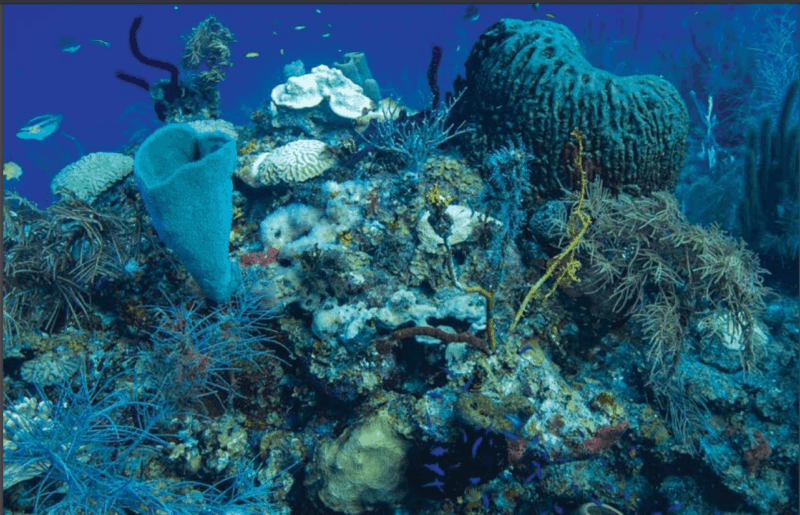Coral reefs are one of the world’s ecosystems most threatened by climate change as warming waters lead to coral bleaching, threatening marine species that millions of people depend on for food and income. Combine that with more localized threats such as pollution, overfishing, disease, unregulated development and tourism, and the future of the world’s reefs looks bleak if nothing is done to address these problems.
That’s why in mid-2019, Internews’ Earth Journalism Network, with support from the Summit Foundation, launched the Mesoamerican Reef Reporting Project. The goal: To increase and improve news coverage on the health of a reef system that stretches more than 1,000 kilometers along the coasts of Mexico, Belize, Guatemala and Honduras.
The longest barrier reef in the Western hemisphere – and the second longest in the world — the Mesoamerican Reef plays a vital role in coastal protection, tourism, food security and biodiversity, and supports the economies of many coastal communities in these four countries.
Over the nine months of this project, we hosted two media workshops – one in Mexico and one in Belize – training a total of 28 journalists who produced nearly 50 stories. We also provided 10 reporters with small reporting grants and mentorship to help them better report on these issues, enhance their knowledge of the challenges facing the reef and of ways to conserve its health.
Those reporters produced 17 stories (three from Guatemala, five from Belize, five from Mexico and four from Honduras), which you can read versions of on our website. They are a mix of news, features, photo essays and videos, providing a wide and in-depth view of challenges the Mesoamerican Reef faces across the region. Here are some examples:
- In Mexico, Adriana Varillas explored the threat posed by sargassum, a pelagic macroalgae that effectively suffocates the reef, as well as “white syndrome,” an emerging disease that can kill corals in just weeks, threatening marine biodiversity and local economies.
- Around the Yucatan Peninsula, Manuel Alejandro Castro Flores looked at how sewage from hotels and other infrastructure built to accommodate a growing tourism industry is altering ocean nutrients that allow for the growth of algae that deprives corals of light and oxygen.
- The lack of solid waste management is also impacting the reef in Belize, as Dion Vansen explained in this story.
- Further south, Oswaldo Hernandez in Guatemala wrote about how pressures put on a protected marine area by overfishing could lead to its collapse.
- iIlegal and unregulated fishing are also threatening marine resources in Belize, as TV reporter Courtney Weatherburne explained.
- Meanwhile, Francelia Solano investigated how criminal activity connected to the drug trade, mining activities and monoculture plantations are all threatening the mangrove forests that protect coastal areas and help purify the water coral reefs rely on.
Many reporters also looked at how places are responding to these challenges. For example, Patricia González picked up on how parametric insurance is being tested in Guatemala as a way to secure long-term financing for coral reef restoration, while Josué Quintana Gómez reported on the recent opening in Honduras of Central America’s first coral aquarium. And despite all these threats, researchers in many places are also working to improve protection and conservation efforts, as Rodolfo Juarez Olvera reported in this four-part video story.
As the final part of the project, EJN and the Healthy Reefs for Healthy People Initiative (HRI) hosted a webinar on the health of the Mesoamerican Reef on February 18. That followed the release of the Mesoamerican Reef Report Card, a tool put out every two years by the Healthy Reefs initiative.
The stories made a mark among our followers, generating strong engagement on social media and hitting on many issues that marine and ocean conservation organizations are working to highlight.
“This Mesoamerican Reef Reporting project was pretty remarkable for how much it was able to achieve despite relatively limited resources,” said EJN Executive Director James Fahn. “There is definitely a strong need for continuing this work in the region, and we are hoping we can eventually do so.”
(Banner photo: Mesoamerican reef. Credit: Healthy Reefs)
